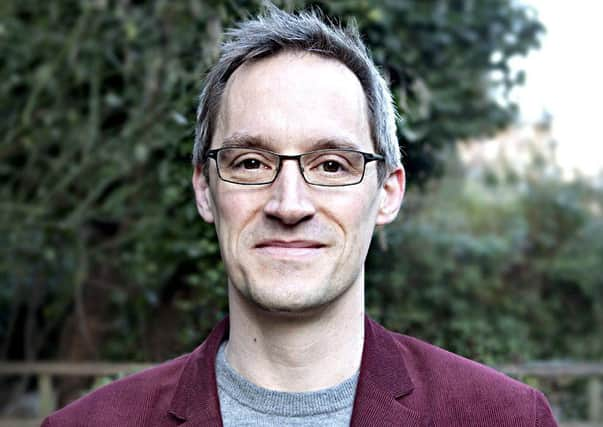James Jopling: Suicide can be prevented '“ and those left scarred are helping us to take action


From all that experience, I know well that it is rare to have a real cross-party parliamentary consensus on any issue. Recently, the Scottish Parliament debated suicide prevention and there was strong shared feeling from all sides.
Some MSPs spoke movingly of their own experience of losing a loved one or their personal struggles with mental ill health. It was clear from all involved that this is an issue that’s bigger than party politics.
Advertisement
Hide AdAdvertisement
Hide AdAs Johann Lamont MSP said so aptly: ‘We are all driven by the profound sense of sadness when it’s clear that a suicide could have been prevented.’
We all must be driven by that. This year saw the first rise in suicides for six years in Scotland and we know that given suicide is preventable that there must be more that we can do. Crucially, what we need now is action that matches that shared commitment that we all have.
The last Scottish Government suicide prevention strategy finished at the end of 2016 and while that doesn’t mean that suicide prevention work has come to a halt, the World Health Organisation reports that suicide prevention strategies really do make a difference. They help ensure national leadership and commitment to this issue is a priority area. Work is ongoing now to produce a new Scottish Government action plan next year, which we welcome. We do all need to ensure, however, that this plan is an ambitious one.
The scale of the challenge demands that we are ambitious. Around two people die every day in Scotland by suicide.
The recent Scottish Suicide Information Database (ScotSID) report also tells us that 70 per cent of people have contact with health services in the year before they take their own life.
Around 60 per cent of those people who have died by suicide in Scotland had a mental health drug prescription dispensed in the year before death.
We need to ensure that those professionals who are most likely to come into contact with people at risk of suicide, such as pharmacists and GPs, are trained to recognise that risk – and to respond appropriately.
Of course, these statistics help us to understand that some of what we do isn’t working. But we can’t forget that behind these numbers are sons, mothers, friends and partners.
Advertisement
Hide AdAdvertisement
Hide AdThe long-lasting pain as a result of suicide is something that can scar forever. More than 700 families in Scotland lost a loved one in this truly devastating way last year. The scale of that tragedy is staggering.
Evidence can point us to what needs to change, but by only exploring the data, we lose the insight and reflections of those who have been suicidal or bereaved by suicide. Policies must be guided by the best knowledge; and that includes both research and real, lived experience.
That’s why we felt it was crucial that any steps which the Scottish Government take must be informed, first and foremost, by the experiences of those who have been touched by suicide.
So, over the past few months we have, along with NHS Health Scotland, the Health and Social Care Academy and the Scottish Government, been consulting people with direct experience of suicide. This way, before any proposals are set, people who most acutely feel the impact of suicide are telling us what would have made the difference for them. Ultimately, that’s what we’re all striving for. To make the differences which mean that fewer Scots take their own life.
From political insights and the best available evidence through to the knowledge of those for whom this is all too present, we have the tools to make that difference.
We will be asking that Scottish Government carefully considers all of the information that this provides. We’ll also demand that we make bold steps forward. As a father who had lost his son noted to us recently, what we need is a ‘sea-change’.
That’s because more of the same isn’t a solution to the challenges we face. Suicide is still the biggest single killer of men under 50 in the United Kingdom. Our combined commitment to changing this demands nothing less than a truly bold vision and plan for action.
Together, we can ensure that the sea change happens.
James Jopling is executive director for Samaritans in Scotland.